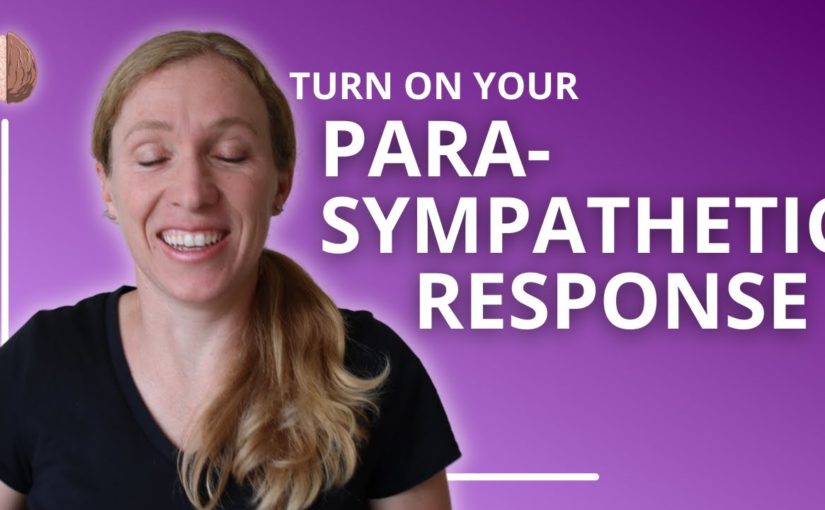00:00:02
So in a previous episode we talked about four self-regulatory techniques that help trigger the parasympathetic response in our nervous system.
00:00:17
That’s the calming reaction that our nervous system has to balance out the sympathetic response which is the alerting fight flight or freeze response. In this episode we’re going to talk about a few more things that we can do to calm our brain. One of the first things that comes to mind is meditative breathing so long deep intentional breathing now This helps trigger that calming reaction and people have been doing it for thousands of years for that very reason.
00:00:45
When you breathe out with a long exhale you may notice an increased production of Saliva in your mouth. Now That’s a parasympathetic response. A lot more people are familiar with the sympathetic response Which is a dry mouth. So meditative breathing long slow out-breath. Now on that note Mindfulness and meditation is also very helpful in triggering the parasympathetic nervous system And we’ll talk more about that in upcoming episodes. Laughter is another technique that helps trigger the parasympathetic response So try and find a way to laugh every day even if it’s watching dumb cat videos on YouTube. I’m going to put a link to my favorite down in the description so check that out. Another way to foster your vagal tone Which is the strength of your vagus nerve is to listen to your biorhythms. So that means going to sleep when you’re tired, Waking up when you’re refreshed, eating when you’re hungry, stopping when you’re full. These sort of biorhythms naturally help the body restore its nervous system and function at its optimal level. We all know how crappy we feel when we don’t have enough sleep and how it affects our emotional reactions.
00:01:50
Multitasking is something our brains are not very well developed to do So mono-tasking is a way that helps calm the brain. Doing one Task at a time and doing it slowly so doing one slow thing a day something that’s calming and slow and peaceful. For example sitting down and petting a dog or or taking a slow walk, looking at the sunset or doing some knitting or crocheting whatever it Is that you like to do.
00:02:17
But just do it slowly without rush. That helps trigger that vagal response. Social connection also helps trigger that parasympathetic response so hugging someone, interacting in a positive way, reaching out and connecting. That all helps soothe the mind and foster calmness. Anything we can do to take care of our body also helps relieve that sympathetic stressed-out, stored up, pent-up energy, so stretching like just stretching out your muscles is a Helpful way to release that tension and trigger that calming reaction as well as getting a massage or any kind of physical activity really can be very helpful. Another weird thing that triggers the parasympathetic response is Standing on your head Now this puts extra pressure on the heart which causes the heart to reacts differently and long story short it triggers that vagal nerve.
00:03:08
Messaging to the body to slow down and calm down so you can give that a try go try standing on your head.
00:03:15
It’s important to remember that none of these techniques are going to solve your problems. The purpose behind these techniques is Calming you down So that you can solve your problems if we use these anxiety reducing techniques as a distraction from our problems or from our anxiety, in the long run our anxiety is going to stay. So it’s really important to find out the Function behind your emotions what they’re trying to tell you and then meet their needs. We’ll talk more about this in upcoming videos. Make sure you’re not using these techniques as an attempt to control or force your emotions to change as That can often make things worse what we’re really trying to do is foster the calm part of your nervous system That’s already there. Hope this was helpful. Thanks for watching and take care



